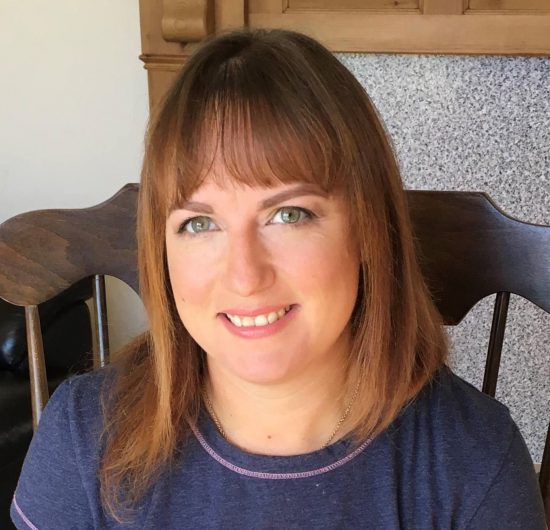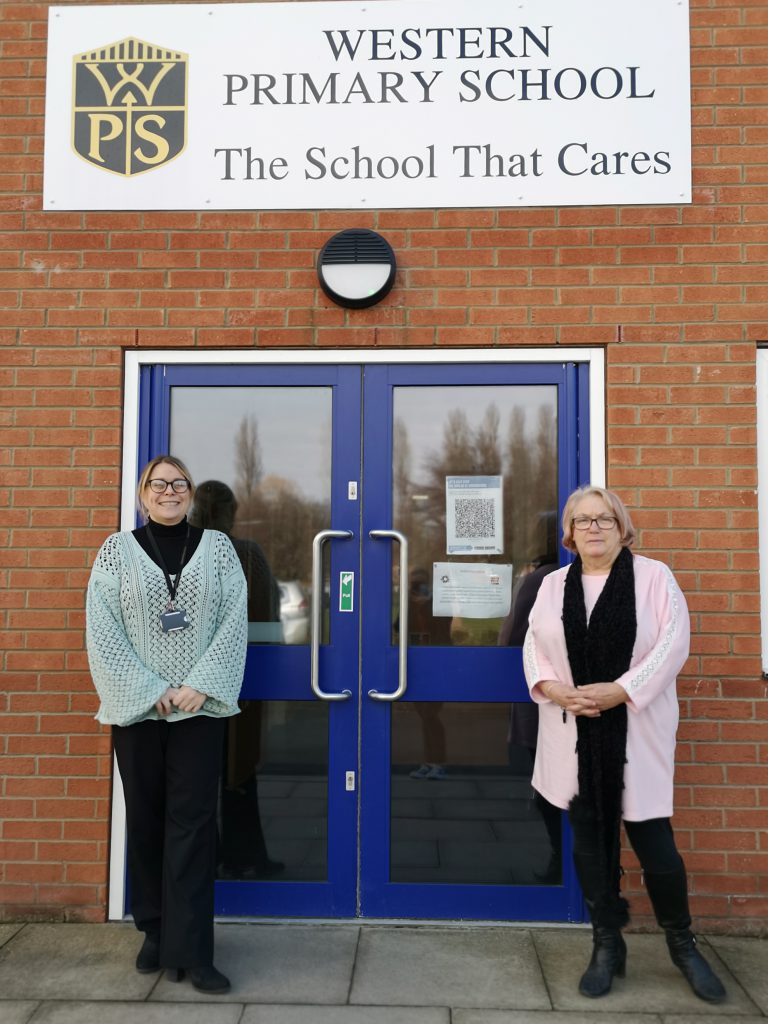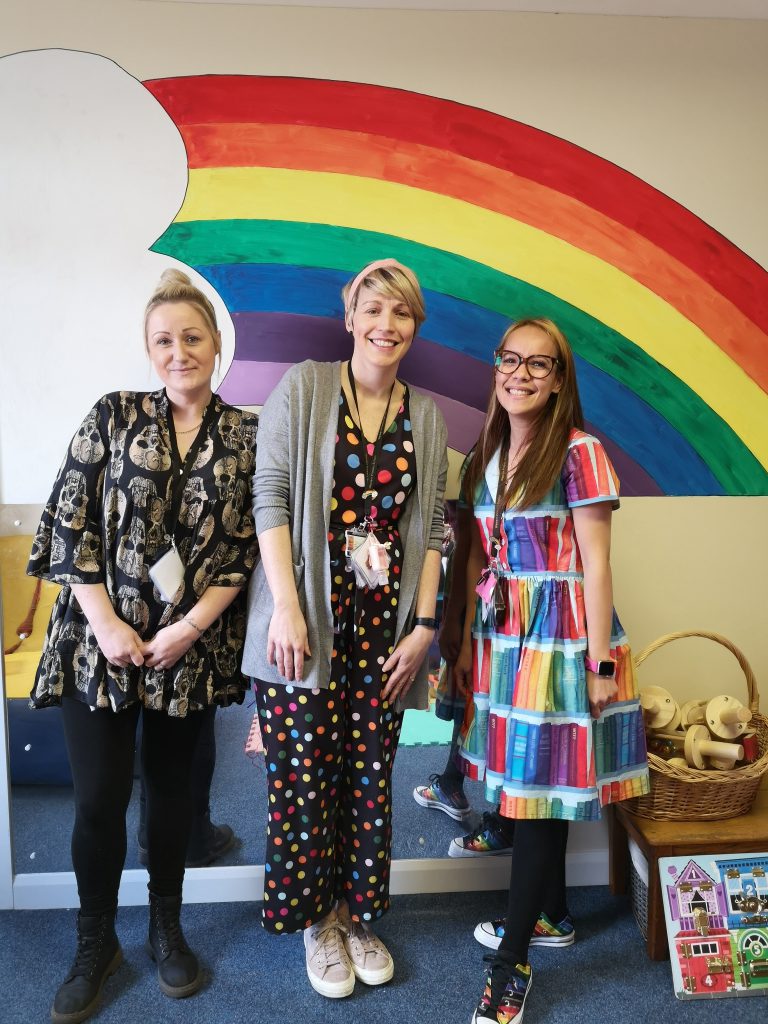Celebrating SEND- local stories
This is me! Read the stories that bring local SEND to life.
Watch videos and read about the children and young people with SEND, their families that love and support them, and services and professionals that help them succeed.
You can also see what promotion we have coming up.
2023 SEND Award Winners’ videos
Harvey
Harley gets support in school and with his cane skills and mobility.
Support for Brody
Brody gets support from the Educational Team for Hearing and Vision.
His mum says support for them during the Covid lockdown was phenomenal and is grateful for the help he received.
Tony and Lily-Mae
Tony is a parent of a child with profound learning and physical needs.
He is one of the parents who share their experience and ideas with the Local Authority.
It is helping to improve what we can offer.
Agnes and Harry
Agnes is mum to Harry who is getting support for his hearing.
In this video, Anges talks about the milestones Harry has reached with support from the Education Team for Hearing and Vision.
They’ve been seen by the team since they got home from hospital.
Agnes said that Harry is starting to point, play new games, and on the day this video was filmed he said, “bang, bang.”
Brad
Hear from Brad, a young person with hearing loss.
He shared what techniques and skills he has learned to adapt at school and at home.
He says he has grown in confidence and become more independent.
He has big aspirations for the future and knows that nothing will hold him back.
Charlotte and Faith
This is Faith’s mum Charlotte. Faith is severely sight impaired.
Her mum is grateful for the Education Team for Hearing and Vision (ETHV) for supporting Faith to become more independent at home and at school.
She says, “I honestly don’t know where we’d be without them.”
Faith
Faith is severely sight impaired.
She shares how her BrailleNote helps her to learn in school.
Her mum, Charlotte, says it was a real game changer for her.
Watch her mum talk about Faith’s journey to independence.
Jordan first gained his taste of the workplace when he was supported by Employability Services to undertake a Supported Internship in 2017 as part of his final year at college.
An employer was sourced who was happy to job carve a role for Jordan to enable him to develop the skills he needed to work within the Hospitality Sector. Jordan was job coached by Employability Support Officer Tracy Chaplin to learn hands on skills within this very busy café; A Priest, a Mill and a Ferry.

Jordan is Autistic and has Global Development Delay which means he may take a little longer to learn new tasks and develop the coordination skills needed to carry this out.
Jordan’s hard work was rewarded post college with the offer of paid employment, and this is where he still remains today; a loyal employee.
Jordan has shown a great sense of resilience since leaving college, as he stepped back into his role post pandemic. This was despite the new social distancing rules, facemask wearing, one-way systems and the trauma of losing his Dad earlier in the year.
All this was possible due to the very supportive nature of his managers; husband and wife team; Maddie and Paul Shaw, who say “Jordan is still learning to be more socially interactive with customers and colleagues and able to do his selected tasks to a high standard as well as assess when something needs doing without prompts”.
Tracy Chaplin (Employability Services), who still works in partnership with Jordan and his employers, says “Having watched Jordan progress over the last few years from a teenager to young adult has been amazing and an absolute credit to himself and his employers. It is a pleasure to continue supporting Jordan whilst he is in paid work”.
If you require further information or support, please contact Employability Services on 01472 256730, or visit the website here – external siteEmployability Services – Care Plus Group- external site .
Alternatively, you can get updates on social media: Employability (@EmployabilityS) / Twitter- external site and Care Plus Group Employability Service Facebook- external site .
Mark and Claudia Dixon have shared their praise of the support their son William received while he transitioned to Franklin College.
“William was so happy at Franklin… and in his own words ‘at home’.”
“William always received outstanding and consistent help from the Learning Support team at Franklin College.
“He was made welcome well before he began by the Learning Support Manager at Franklin going along to his annual and transitional reviews whilst still at school. The Learning Support team got to know him on Transitional Days, reassuring him of any worries he had and so that he was confident to approach any one of them by the time he started.
“Throughout his time at Franklin the Support Manager and team were always thinking for William by looking at different ways to help him progress academically and as an individual.
“William was confident to move around the building alongside fellow students going to and from lessons enjoying the environment around him. He had access to 1:1 support within the classroom setting.
“This was always tailored to his specific needs but at the same time gently working towards giving him more confidence in his work. This in turn helped to increase his independence and ‘thinking for himself’ which he tends to struggle with. Support would point him in the right direction but yet gave him the freedom to work towards his goals blending in with his own method/way of working.
“William had access to additional support sessions with the same support assistant that had been present during his lessons. This helped enormously as they had been in the lesson together and so they could work on any aspect of the lesson that William was maybe struggling to understand or recapture. He was then able to continue his work at home independently without worry or anxiety.
“William enjoyed the support from someone close to his own age. He was like a ‘buddy’ to him, they would talk together on almost anything so he had support on a social and emotional basis. William also enjoyed extra-curricular activities that Franklin offered. This was an opportunity to be with other students and enjoy common interests together outside of lessons.
“William was part of an educational trip to Paris, it was the first time he had been out of the country from his family but once again, this was possible because of the un-ending support from Franklin staff. Even in his final weeks Franklin continued to support William by going along with him to visit where he was choosing to further his studies.
“William was so happy at Franklin he always felt self-assured there and in his own words ‘at home’. Everyone there was kind, patient and interested in him, taking the time to get to know him. For William his choice of going to Franklin was the right choice without doubt.
“And as his parents, we feel the very same too!”
Tomas Lindley, age 16, from North East Lincolnshire is a an aspiring actor, leader, and ambassador for SEND.
See his honest and heartfelt account of living with autism in his Young Reporters article that he wrote when he was 14. Stay tuned for more from Tomos.
“This is a little story about a boy. A boy who had something kept in him for as long as he could remember, and wonder what he’s going to use it for. The boys goes by the name Tomos Lindley. That’s right, my name.
“This is the story of my life. A story about me preparing for my future. For the past 14 and a half years, I had something in my head that I guess, that is a huge part of my personality; Autism.
“I was diagnosed with it. Born with it. And I live with it for every single day that I could think of. Some people would rather call autism a disability – I don’t. In my own words, I would rather call autism like a special gift. I would despise anyone who calls it a curse.
“Even though you’re born with it, you still have each and every bone in you that makes you human. And there’s what, like millions perhaps billions that share this symptom. And now you are reading an article from a boy who’s going to express about how my autism made me the young man that I am right now.
“Now what to say first; I am quite shy. I am a bit forgetful on my education but I am gradually getting better. I wouldn’t really consider myself an air head. I am not too much of a socialiser unless necessary. I mean, it makes perfect sense as I am in my teenage years, so one thing I have to do in school is survive.
“I never even held a grudge or lashed out, I am just that calm. No wonder I am setting up to become a prefect and assist kids in drama class; which is quite ironic since doing acting is like my dream job. I used to dream about doing acting and then I started to get different types of dream based on my future, (you may call them visions if I was exaggerating). And in that dream, I saw myself not being an actor or a daily average celeb. I saw that through me in the near future that I would become a hero for millions and billions who share the symptom. And I know I will achieve that goal because I believe that people with the smallest mind can still achieve that one step in life.
“Did I ever tell you why I don’t like the term disabled? When I usually hear that word, it just seems to make me feel like you calling someone broken. Maybe I am not thinking clear, but just calling someone who has a special need broken, feels like a hate crime.
“If somebody calls somebody with a need broken, the main thing it would break is my heart. I don’t want to spread fear into the children with needs, because I don’t want them to be afraid of what they have.
“I want to spread hope into their hearts. Hope they will get the help that they need. Hope that they will always be treated like children. Hope they will always be part of humanity.
“You see, I am a believer and what I believe the most is that someone with a need can still succeed in life and get the happily ever after they dreamed of. And all I said right there, can all be said by just saying one defining quote.”
“One small mind, can still make a huge difference in one big world”.
Do you like to write? Follow the Young Reporters on Twitter.

James, 14, is from Cleethorpes and is a local child with SEND.
His chromosome disorder was not revealed until he entered Secondary school. Without a clear understanding of the issue there have been both struggles and celebrations during his journey.
His mum Jayne shared their story.
She said: “James and I have a really strong bond.
“When he was growing up there were no severe red flags to say that he clearly had a special need or disability. “He was advanced in some areas but behind in others.
“He was toilet trained by 18 months, and his speech and language was advanced.
“However, he was behind in motor movements. Other children were stacking blocks when he could not. He could not put shapes through the right holes.
“When he was learning to crawl and walk he was behind. However, when he got to those stages, his development was normal and his coordination was fine.
“He has always been bright and happy. However, he had some social and emotional delays that became apparent through friendships at school.
“He had some sensory issues. He liked to touch things and would fidget or run his hands along the table. Teachers thought he was distracted or being disruptive when he wouldn’t leave the objects on the desk alone.
“It was difficult at times because he didn’t have a clear diagnosis. Sometimes he was branded as naughty.
“I have a special educational need that wasn’t diagnosed until I was 35 and I remember what it feels like to feel singled out and labelled.
“I’ve done really well when I’ve been supported by people who believed in me and I’ve really struggled when I’ve been misunderstood and put down. I didn’t want James to struggle.”
Jayne realised he would need support in Secondary School.
“There was support in Primary School that would stop at Secondary. I made a referral for him to be assessed for his needs and we got a diagnosis of ADHD.”
Jayne accepted the diagnosis but soon had concerns that James didn’t have ADHD.
“I started going to support groups for parents of children with ADHD and it didn’t sound anything like James.
“Their children never slept, and they had to watch them all the time. They were constantly on the go and couldn’t let them out of their sight.
“When he was younger, I could say to James, ‘you don’t have to hold my hand, but don’t go out of my sight. If you go up to the road then you will have to hold my hand.’ He wouldn’t impulsively run across the road or forget the consequence that I gave him for going too far.”
Jane expressed her concerns to the paediatrician and got further assessment into the needs James had.
“A blood test came back to say that my son had a duplication of a chromosome. This means he has development delays that significantly impact his life daily. For example, he has a minor hole in his heart and joint pain that affects his handwriting.
“After it was discovered that James had the chromosome disorder, he was reassessed for ADHD and didn’t meet the criteria so that diagnosis has now been cancelled.
“In Secondary school he started having difficulties at school. He was getting put in detention and isolation. It affected his mental health because he couldn’t understand what he had done wrong.
“I pulled him out at Year 8. He was recommended to go to the Orchard School. It did wonders for his mental health and self-esteem but academically he was getting behind. He is smart, and I wanted him to have the opportunity of getting a full set of GCSE’s, and so put him back in mainstream school.
“At his new school the Principal was great. She was very understanding of his needs and behaviours and I felt that she listened to me. Because he had an EHCP Plan he was in school during lockdown and she put herself forward to spend time with him during lockdown if he got overwhelmed or needed support.
“He doesn’t look forward to going to school but accepts it and it is a more positive experience than it was before.
Leading by example, Jayne has a positive attitude towards being a mother of a child with SEND.
“There’s been a lot of ups and downs. I’ve had both supportive and difficult experiences as a mum of a child with SEND.
“But for all of that I think I must have done a good job at being a mum because we did a six-week tour in Australia and the strangers we met along the way came over to praise him and say how well behaved and polite he was.
“We have a good bond and I think the trust and security he has with me is one of the reasons his issues aren’t as severe as they could have been.
“I had a bad experience of pregnancy and labour but have loved being a mother. Being a mother has been one of the best experiences in my life.
“It made me realise that for all the struggles we’ve had we’re doing well and there’s lots to be happy about.”
Becky and Evie from the original Grimsby Gymnastics, now rebranded as Eclipse shared how they’ve brought SEND to the centre of their work to provide more opportunities for sport, fun and recreation to children with disabilities in our area.
Becky works for the NHS within the children’s therapy team, and also works with children with SEND at a school.
They want to welcome more children with Special Educational Needs and Disabilities to their gym.
Becky said, “After extensive research we know that there are not enough opportunities for children with disabilities to engage in a sporting activity locally.
“We can accommodate disabilities within mainstream clubs, or we can offer dedicated disability sessions.
For people with limited mobility their hoist gives access to their facilities like the trampoline and spring floor.
“We are really excited to offer Rebound Therapy on a trampoline which gives children who have issues with mobility the freedom to move in ways that they cannot move on the ground.
“Rebound Therapy is proven to be beneficial for children with mobility and learning disabilities.
Many children who attend have Autism Spectrum Disorder and other special needs.
“Changing facilities consist of a disabled toilet along with private area providing a suitable plinth and mobile hoist.”
Eclipse offers Disability sessions at £6 per hour and their Rebound sessions for £15 for a 20 minute session.
Get in touch
Follow Eclipse Gymnastics on Facebook.
Call: 01472 354359
Email: info@eclipsegymnastics.co.uk

Jonathan, age 15, from Grimsby shared how his transition to a smaller educational setting helped him.
Jonathon has Dyspraxia, learning difficulties, traits of ADHD, traits of autism, and a balancing problem.
Moving from mainstream to a smaller educational setting helped Jonathan enjoy school again.
Jonathan, who is one of three brothers, was attending school during the second Lockdown because he has a disability.
His parents Christine and Richard say they could not be prouder of the progress he has made.
Christine said: “He wasn’t happy in mainstream school. He did not get on with a lot of people at school and his teacher could not handle him.
“We used to have to get him up and it was a struggle to get him to school.”
Jonathan started at Learning4Life in Grimsby fulltime in September 2020.
He said: “I started with one day a week and progressed day by day up to five days.”
Christine added: “Now he gets up on his own, has his breakfast, gets ready, and lets us know it’s time to go to school.”
“It’s a complete change. We can tell he is a lot happier.”
He learns from a syllabus that can be tailored to his needs as that changes as he progresses in an area or needs more support.
Jonathan said: “I like the smaller class sizes. I’m one of only five or six students in each one.”
Christine added: “If he is having an off day, they give him the freedom he needs to regroup and he can settle back in when he’s comfortable.”
During the next year he will be working towards college. He is also taking employability courses to give him an idea of what working life might be like.
Outside of school Jonathan enjoys listening to music and watching YouTube videos about video games, transformers, and ninja turtles in his free time.
Jonathan can now add school to the list of things he enjoys.
“We let him lead the way. Sometimes a child with autism needs to feel in control. By giving him the control he was able to start to learn.”
John*, aged six, had an Education, Health and Care Plan (EHCP) and had recently moved school when he was referred to the Advisory Teacher for support.
At first it seemed as though John would not join in classroom activities.
The Specialist Advisory Teacher observed John in the classroom and made an interesting discovery about how to engage him in the classroom.
“During a literacy lesson John requested number cards.
“He took the cards and started to order them on the carpet. He was re-enacting what a teacher had done in a previous lesson.
“Although he would not engage in the outlined timetable, he was eager to learn and participate.
“We let him lead the way. Sometimes a child with autism needs to feel in control. By giving him the control he was able to start to learn.”
For the first time since he had been in the school, John particiapted in ‘academic’ activities for over one hour.
“This was a huge success and mathematical, language, and activities were successfully included in his ‘play’.
“More activities from the standard timetable were successfully integrated into his day using a similar approach.”
Staff continued to use this approach and over time he became more willing to follow adult-led activities if he could choose in which order to do them.
John is now 10 and has since made good academic progress. He is now able to work independently in the classroom.
There have been times when the strategies have stopped working as effectively or he has shown signs of anxiety.
The school have always contacted the Advisory Teacher immediately to ask for advice and new strategies have successfully been put in place.
*Names have been changed in this article
“Because she was older and with support from her mum, she was able to identify and communicate what was going wrong at school and with her friends.”
Laura * was diagnosed with autism as a teenager in Year 9. She was then triaged to the Specialist Advisory teacher for support by the school’s SENCo as there were concerns about her lack of academic progress and social vulnerability.
The Specialist Advisory Teacher said: “When I first met Laura her head was bowed, she had hunched shoulders and she cried when we talked about her diagnosis of autism.
“I worked with the SENCo, Laura and her Mum to identify the difficulties she was experiencing at school and in her social life.
“Because she was older and with support from her mum, she was able to identify and communicate what was going wrong at school and with her friends.”
Based on the discussions with staff, Laura, and her mum strategies were suggested to help Laura both at home and at school.
“For example, one of her challenges was letting go if she faced a setback in class. Once teachers understood how to approach her needs, she was then able to move on.
“I was also invited to deliver the ‘How to support the autistic child in the classroom’ training, and did so, highlighting Laura’s needs and how to support her.
“We were flexible in our approach and offered review meetings at least every term when new strategies were suggested when they were required.”
The outcome was positive. She enjoyed school and started looking forward to going college.
“When we last met I could tell she had come on a long way. She was smiling, and her posture showed that she was feeling positive and confidant.”
The Specialist Advisory Service is a small team of advisory teachers who provide training, advice, support, assessment, observation and guidance to schools, academies, and families, on meeting the needs of children and young people with severe and complex difficulties, in the areas of communication & interaction, cognition & learning, and social, emotional & mental health.
*Names have been changed in this article
“Every child is different and has their own unique strengths and qualities that we want to nurture in school.”
Tom has autism. Read about how his confidence grew throughout his Secondary school transition with the help and support of the local Specialist Advisory Service.
There are a lot of positive things for children to look forward to when moving up to Secondary school.
A little support goes a long way to help children learn from new experiences.
The Specialist Advisory Service is a small team of advisory teachers who provide training, advice, support, assessment, observation and guidance to schools, academies, and families, on meeting the needs of children and young people with severe and complex difficulties, in the areas of communication & interaction, cognition & learning, and social, emotional & mental health.
One of North East Lincolnshire Council’s Specialist Advisory Teachers said: “I delivered training to school staff named ‘How to support the autistic child in the classroom’.
“This was focused on Thomas and his wants, needs and strengths.
“I also offered a detailed transition report which included details like details of his strengths and needs academically, socially, and emotionally.
“Every child is different and has their own unique strengths and qualities that we want to nurture in school.
“That’s why it helps to make sure everyone has the same understanding and knowledge about autism and the child.
“It helps the child feel more comfortable and reassured that staff will support them when required.
“It also helps staff identify attitudes and behaviours correctly.
She added: “I heard back from the school after Thomas had been there for a term.
“The staff felt they knew him and his needs better and wanted the opportunity to discuss how to meet his needs in different situations.”
“Throughout his time at the secondary school, staff have been very quick to contact me whenever they needed help to meet his needs and to then put the support in place.
The support of the Specialist Advisory Team, their work with Thomas and ongoing work with his school has produced positive results.
“Thomas is now in Year 11. He is communicates well and can manage his feelings in a positive way. He is looking forward to going to college.”
The Advisory Teacher also credits the ‘tremendous support’ of the school SENCo and wider team in supporting Thomas to do so well.
*Names have been changed in this article
The Rainbow Room at Western Primary School. ‘The School that Cares’.
The Rainbow Room at Western Primary School is a specialist provision within a mainstream setting for children with Special Educational Needs and Disabilities.

The Rainbow Room was established in September 2020 to support children in Key Stage One with an EHCP. It is a great success.
Clare Linfitt, SEND Service Manager, said: “We recognised that there were a number of young children with a primary need of speech language and communication who required extra support.
“Some of their parents had expressed an interest in a Special School place.
“The Local Authority could see the benefit of having more options for parents and carers to choose from. The Rainbow Room, an additional specialist provision within Western Primary School was created as a result.
“A specialist provision within a mainstream primary is often seen as a best practice model for children with speech, language and communication needs.”
The Western Primary School motto is, ‘The School that Cares’.
Mrs Kim Leech, Executive Headteacher, said: “For a child who doesn’t communicate as strongly as their peers or who is non-verbal, actions speak louder than words.
“By having a specialist provision in a mainstream setting students with SEND get to interact with other children.
“They will be a part of other children’s games, conversations, and imaginative play.
“They learn a lot from each other.”
Staff at the Rainbow Room were eager to share the positive impact the Rainbow Room has had.
Mrs Leech and school SENCo, Ellie Dean, showed us around and introduced us to the specialist teacher, Katy Dalton, and teaching assistant’s Sarah Lonsdale, and Marie Char.

The pupils were happy and friendly and keen to show us their classrooms. There was a positive energy between staff and pupils. Staff could frequently be heard praising the children and giving them lots of encouragement.
We were introduced to Toby and Evie* who were making huge strides in their development and were helped by Sam Bates, Higher Level Teaching Assistant.
Evie is making great progress interacting with the other children and becoming more confident.
Toby was very friendly and came to speak to us. He was developing his social skills with others.
The teachers spoke enthusiastically about how proud they were of their pupils.
It’s clear to see that staff care a lot about the children and have a nurturing and personal approach.
The staff say this is one of the reasons the programme is working so well.
SEND Teacher, Katy Dalton said, “One of the reasons it works so well is that we adapt to the children’s needs and tailor the support we give to each individual child.
“The children feel safe, comfortable and confident with the staff.
“They are familiar with the room and the things in it that we use to learn.
“There are some features of the room that have been adapted for specific children.
“The children know that the space is for them and that it is a safe place to learn.”
The two rooms that make up Rainbow Room are appropriately decorated with the bright colours of the rainbow and have the children’s toys, books, and learning activities visible.
There is lots of floor space with tactile toys for activities and play as well as a desk for sit-down tasks.
Mrs Dalton said, “Children often spend their morning in the Rainbow Room where they get tailored, one to one support that is specific to their needs.
“For example, we practice their language and interaction with Picture Exchange Communication System (PECS).
“A child who is non-verbal may practice Makaton where we use signs to communicate and learn.”
“We look at the whole picture, not just academic learning. Things like using the toilet and daily tasks like feeding themselves all form an important part of their learning that may take longer for a child with SEND.
“Some children come without toilet skills and don’t feed themselves. They may spit or bite or be behind in learning and interacting.
“It is great to see them make strides forward to play positively with others, tell us what they want and need and do daily tasks independently.
“They can join the mainstream class for playtimes and in the afternoon where they learn among other children their age.
“Currently, five children use the room on a daily basis.”
She added, “I have my own personal experience of SEND with my own child.
“When my child was in nursery, I felt they needed support and weren’t getting it.
“I felt like I had to fight to be heard.”
“I saw first-hand how well a child could do with the right support and it inspired me to do this here in Rainbow Room with the support of the school leaders.”
What if a child has a setback?
“We work really hard to understand the child and their specific strengths and needs.
“We plan the way forward so parents and the children can see where they can progress to. Knowing what to expect helps a lot.
“Children change all the time. It’s about working with them to make progress in whatever way they are able at that time. It helps to be flexible.
“One child might be performing really well academically but their emotional needs require support.
“Another child might behave wonderfully but be behind in their learning or another part of their development.
“We know that changing behaviours are just a part of their development.
“Some things that may be thought of as bad behaviour in a mainstream setting, we can see as curiosity or a milestone they will reach in a different way.
“We celebrate each child for what they can do and focus on the positives. We can see the results.”
Mrs Dean told us why she was so keen to develop Rainbow Room and how she feels it benefits both the children and the staff and pupils across the mainstream site as well.
“It is really important for all members of our school to mix and work together as much as possible.
“Everyone is different and everyone has their own needs.
“It is very beneficial for the children to learn this from a young age so they are able to take that understanding out into society and the wider world.”
Mrs Leech explained how parents and carers are included in their child’s learning and development and why this is part of Rainbow Rooms great success.
“The staff have built trusting relationships with the parents.
Parents are involved in every aspect of the children’s learning and there is daily contact with each of them.
“Parents know they can contact the school at any time for any reason.”
*The names of children have been changed in this article
Ryan’s success story. An apprenticeship and employment

“Ryan’s hard work has resulted in him securing a permanent position in his dream job.”
Norma Yarborough, Supported Employment Team Leader
Ryan who has Aspergers Syndrome passed his Level 2 Health Care Support Worker Apprenticeship, gaining a Merit and securing sustained employment with Vulnerable Adult Day Services.
Ryan said, “I was over the moon when I found out that I passed with a merit.”
Ryan has always shown determination to succeeed while overcoming barriers relating to his Aspergers Syndrome. When Ryan left college he worked hard to get his degree in Sport and Exercise Science at University.
Not one to shy away from a challenge, Ryan was eager to prove he had the qualities and skills to succeed in gaining his apprenticeship.
Ryan’s caring and passionate nature serves him well while helping people through his work. On a daily basis he supports people with learning disabilities, enables service users to participate in group activities, and assist them to make informed decisions to so they can live more indepdently.
Norma Yarborough, Supported Employment Team Leader said, “I am very proud of Ryan and all that he has achieved.
“He has displayed courage and commitment to overcome many personal barriers and he is now more confident in his own abilities both personally and professionally.”
“Ryan’s hard work has resulted in him securing a permanent position in his dream job.”
Ryan said, “I would like to thank the continued support from all the staff of Employability Services for making this employment possible.
“[I would also like to thank] the staff of Day Services for their continued support throughout, none of this could of been possible without you all, so thank you very much, you have done a fantastic job.”
How Supported Employment assisted Ryan on his employment journey
Norma Yarborough, Supported Employment Team Leader at Care Plus Group said, “I supported Ryan with all aspects of job search like looking on job websites, registering and uploading his CV onto the DWP job website, and helping him to complete his application form for job vacancies.
“I also supported Ryan with mock interview practice for the Apprentice Support Worker role to prepare him for the interview.
“Ryan was anxious about entering a new environment and was also nervous about what would be expected of him during the training session. Being with Ryan made him more comfortable so he was able to concentrate on the training.
“Throughout Ryan’s apprenticeship, Supported Employment held regular reviews with him and his supervisor. These reviews gave everyone an opportunity to discuss Ryan’s progress and ensure that everything was going well for him, as well as an opportunity to address any areas of concerns.
“Everyone has their own individual needs and by offering our support Supported Employment were able to help Ryan get the best start in his working role”.
Read more about local opportunities for education, training, and employment including supported training and employment on the Children and Young People’s page.
Faith’s story – Working towards independence

This is Faith, who has a profound loss of vision and uses Braille, tactile resources and a long cane to enable her to move around and work independently alongside her peers. All these skills were supported throughout lockdown by her Specialist TA Miss Maeers and the specialist trained staff who form the Vision team.
In the picture Faith is using her electronic BrailleNote Touch (BNT) to work independently alongside her peers producing her work in Braille. Her work is downloaded on to the BNT for her to listen to or read with her fingers. She then produces her work in Braille and this appears in print on both the small screen on the worktop beside her and on the tablet below the Braille keys.
This way the teacher can read in print what Faith is Brailling ‘live’ in class while Miss Maeers is preparing work for lessons later in the week. Faith has worked really hard to learn all the ‘Additional VI Curriculum’ skills she has and new skills will continue to be taught so that she can grow to become an independent young woman.
Returning to school after lockdown with all the new ways of
working has been a challenge for all the pupils on our caseload, but with the right support our aim is for our students to grow in confidence and independence and reach their full potential. Faith is one of our many successful students and her family wanted us to share her story to demonstrate what can be achieved with the right support.
